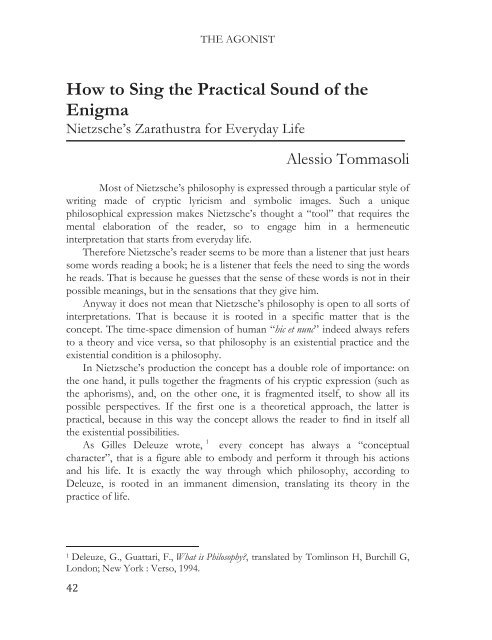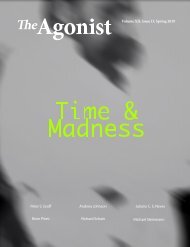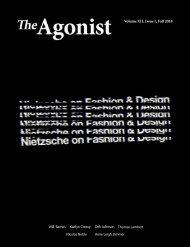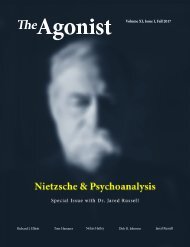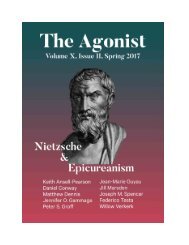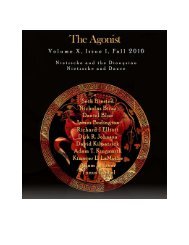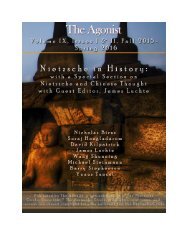Volume XI, Issue II, Spring 2018
You also want an ePaper? Increase the reach of your titles
YUMPU automatically turns print PDFs into web optimized ePapers that Google loves.
THE AGONIST<br />
How to Sing the Practical Sound of the<br />
Enigma<br />
Nietzsche’s Zarathustra for Everyday Life<br />
Alessio Tommasoli<br />
Most of Nietzsche’s philosophy is expressed through a particular style of<br />
writing made of cryptic lyricism and symbolic images. Such a unique<br />
philosophical expression makes Nietzsche’s thought a “tool” that requires the<br />
mental elaboration of the reader, so to engage him in a hermeneutic<br />
interpretation that starts from everyday life.<br />
Therefore Nietzsche’s reader seems to be more than a listener that just hears<br />
some words reading a book; he is a listener that feels the need to sing the words<br />
he reads. That is because he guesses that the sense of these words is not in their<br />
possible meanings, but in the sensations that they give him.<br />
Anyway it does not mean that Nietzsche’s philosophy is open to all sorts of<br />
interpretations. That is because it is rooted in a specific matter that is the<br />
concept. The time-space dimension of human “hic et nunc” indeed always refers<br />
to a theory and vice versa, so that philosophy is an existential practice and the<br />
existential condition is a philosophy.<br />
In Nietzsche’s production the concept has a double role of importance: on<br />
the one hand, it pulls together the fragments of his cryptic expression (such as<br />
the aphorisms), and, on the other one, it is fragmented itself, to show all its<br />
possible perspectives. If the first one is a theoretical approach, the latter is<br />
practical, because in this way the concept allows the reader to find in itself all<br />
the existential possibilities.<br />
As Gilles Deleuze wrote, 1 every concept has always a “conceptual<br />
character”, that is a figure able to embody and perform it through his actions<br />
and his life. It is exactly the way through which philosophy, according to<br />
Deleuze, is rooted in an immanent dimension, translating its theory in the<br />
practice of life.<br />
1 Deleuze, G., Guattari, F., What is Philosophy?, translated by Tomlinson H, Burchill G,<br />
London; New York : Verso, 1994.<br />
42


